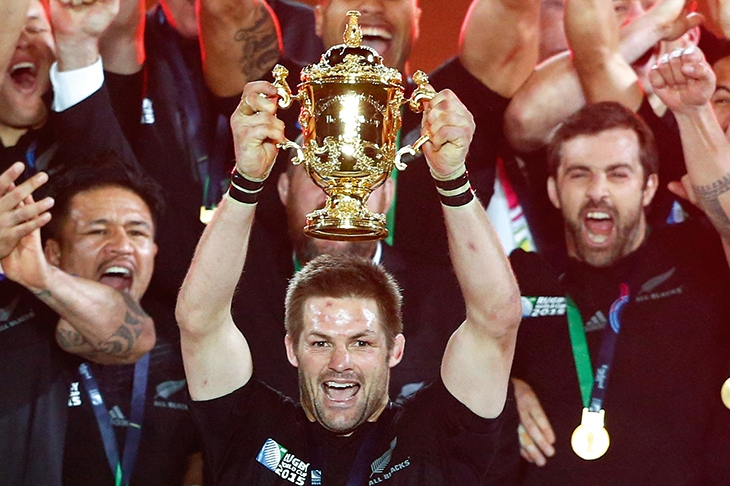‘There’s a chance we’ll meet up with Richie McCaw in Christchurch,’ proffered the PR on our New Zealand press trip. The man from the Sunday Times and I let out a little gasp. We weren’t sports journos but we knew where McCaw stood in the pantheon of all-time greats.
He is the most capped player in rugby union history, a World Cup winner on two occasions and arguably the best open-side flanker there has ever been. He captained the mighty All Blacks 110 times out of his 148 matches, and is probably the most popular living Kiwi. That’s all.
Richie, as everyone knows him, retired from the game in 2015 after lifting the William Webb Ellis trophy at Twickenham. Married to a hockey player, he’s now involved with a helicopter company (he has his pilot’s licence) and has no interest in becoming a coach or TV pundit because ‘I’m not good at getting into all that criticism business’.
What he is brilliant at, however, is answering questions from people like me, who don’t really understand the difference between a ruck and a scrum. And in so doing he embodies all that is best about a sport that will shortly reach fever pitch now the British and Irish Lions have arrived in New Zealand. ‘I don’t miss playing a heap, but nothing will ever replace that feeling when you’re in the dressing room with your mates after giving everything, win or lose,’ Richie said. ‘And there aren’t many sports where you spend 80 minutes bashing the hell out of each other and then go and have a beer together. Respect in rugby is important.’
Richie grew up on the family farm in South Island’s Hakataramea Valley. At the age of 14 he became a boarder at Otago Boys’ High School in Dunedin, where after a couple of years a coach tapped him on the shoulder and said, almost in passing: ‘Just so you know, you’re the best number seven in the country for your age.








Comments
Join the debate for just £1 a month
Be part of the conversation with other Spectator readers by getting your first three months for £3.
UNLOCK ACCESS Just £1 a monthAlready a subscriber? Log in